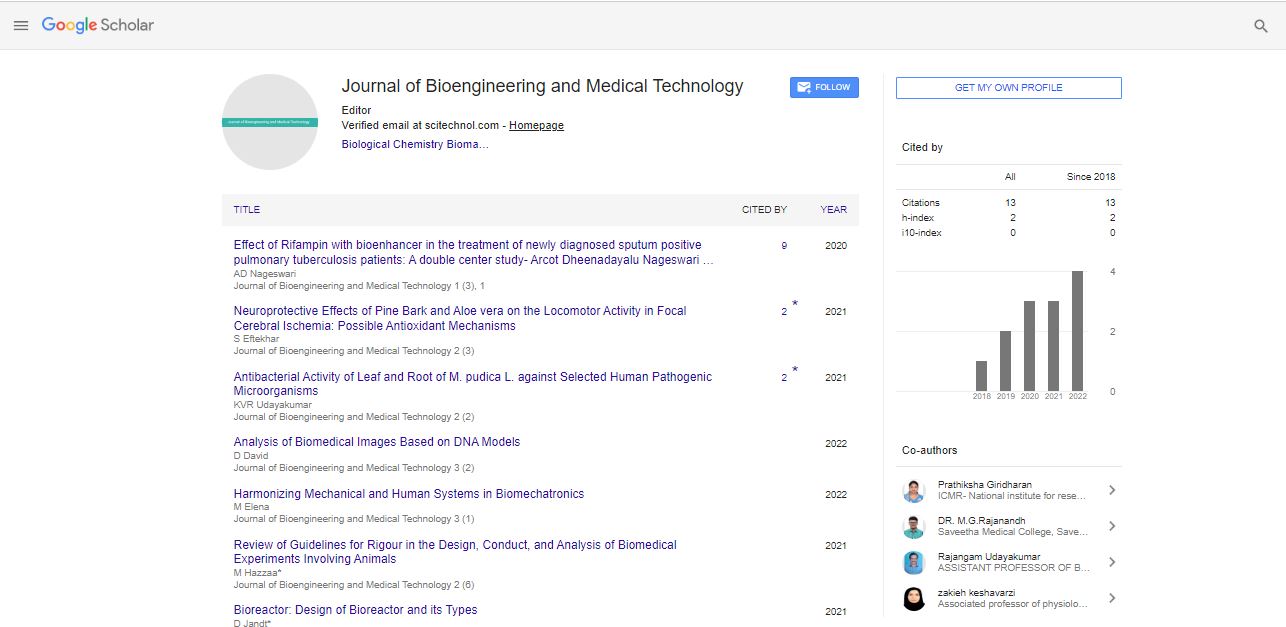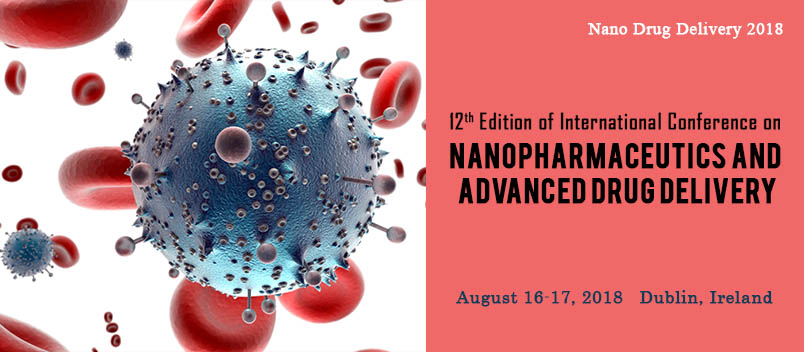Opinion Article, J Bioeng Med Technol Vol: 4 Issue: 2
Engineering Biomolecular Systems for Therapeutic Applications
Susan Fernandes*
1Department of Medical and Biological Engineering, University of Michigan, Ann Arbor, United States of America
*Corresponding Author: Susan Fernandes,
Department of Medical and Biological
Engineering, University of Michigan, Ann Arbor, United States of America
E-mail: susan435@bio.edu
Received date: 22 May, 2023, Manuscript No. JBMT-23-107448;
Editor assigned date: 24 May, 2023, Pre QC. JBMT-23-107448 (PQ);
Reviewed date: 15 June, 2023, QC No. JBMT-23-107448;
Revised date: 22 June, 2023, Manuscript No. JBMT-23-107448 (R);
Published date: 29 June, 2023, DOI: 10.35248/jbmt.1000079
Citation: Fernandes S (2023) Engineering Biomolecular Systems for Therapeutic Applications. J Bioeng Med Technol 4:2.
Description
Advancements in biomolecular engineering have revolutionized therapeutic applications, offering targeted and precise interventions for various diseases, exploring the diverse landscape of biomolecular systems and their role in therapeutic interventions. It delves into the design principles, techniques, and examples of biomolecular systems employed in drug delivery, gene therapy, immunotherapy, and tissue engineering. Furthermore, it discusses challenges and future prospects in the field, highlighting the potential for personalized medicine and transformative healthcare solutions.
Biomolecular engineering has emerged as a powerful field, enabling the design and construction of complex molecular systems with therapeutic applications. By harnessing the fundamental principles of biology, chemistry, and engineering, analysts can engineer biomolecules to interact with living systems for therapeutic benefits, exploring the various strategies employed in engineering biomolecular systems for therapeutic applications, emphasizing the potential impact on healthcare and personalized medicine.
Biomolecular systems offer novel approaches to drug delivery, enhancing the specificity and efficiency of therapeutics. Liposomes, polymeric nanoparticles, and exosomes are some of the biomolecular carriers that can encapsulate drugs, protecting them from degradation and improving their pharmacokinetics. Targeting ligands and stimuliresponsive materials facilitate site-specific drug release, reducing offtarget effects, discussing recent advances and challenges in developing biomolecular drug delivery systems, including overcoming biological barriers and optimizing cargo loading.
Gene therapy has immense potential for treating genetic disorders and acquired diseases with a genetic component. Biomolecular systems play a vital role in gene delivery to targeted cells, ensuring safe and efficient gene editing or expression. Viral vectors, such as Adeno- Associated Viruses (AAVs) and lentiviruses, are engineered to deliver therapeutic genes to the desired tissues. Non-viral methods like CRISPR-Cas9 ribonucleoproteins and mRNA-based systems provide alternative approaches, reviewing recent breakthroughs in gene therapy, including genome editing precision and progress in treating monogenic disorders.
Biomolecular systems have transformed cancer treatment through immunotherapy, harnessing the body's immune system to combat cancer cells. Monoclonal antibodies, Chimeric Antigen Receptor (CAR) T cells, and immune checkpoint inhibitors exemplify the successful application of biomolecular engineering in cancer immunotherapy, by highlighting the importance of rational design and optimization of these biomolecular systems to achieve enhanced anti-cancer efficacy while minimizing adverse effects.
Biomolecular systems play a vital role in tissue engineering, where scaffold design and growth factors are tailored to support tissue regeneration. Decellularized matrices, hydrogels, and nanofibers serve as biomolecular scaffolds for cell attachment, proliferation, and differentiation. Growth factors and cytokines are engineered to promote tissue-specific regeneration and repair, examining current advances in tissue engineering, discussing the potential to develop functional tissues and organs for transplantation.
While engineering biomolecular systems for therapeutic applications has the potential in several challenges need to be addressed. Safety concerns, immune responses, and regulatory hurdles demand careful consideration in the translation of these technologies to clinical settings. Additionally, the potential for off-target effects and unintended consequences of gene editing requires further analysis, concluding with optimism, highlighting the transformative potential of biomolecular systems in revolutionizing healthcare and paving the way for personalized medicine.
Conclusion
Engineering biomolecular systems has opened new horizons in therapeutic applications, offering targeted and precise interventions for various diseases. From drug delivery to gene therapy, immunotherapy, and tissue engineering, these biomolecular systems have demonstrated their potential in transforming healthcare. The continuous exploration and refinement of these technologies, combined with a robust regulatory framework, will undoubtedly shape the future of medicine, making personalized treatments a reality.
 Spanish
Spanish  Chinese
Chinese  Russian
Russian  German
German  French
French  Japanese
Japanese  Portuguese
Portuguese  Hindi
Hindi 
